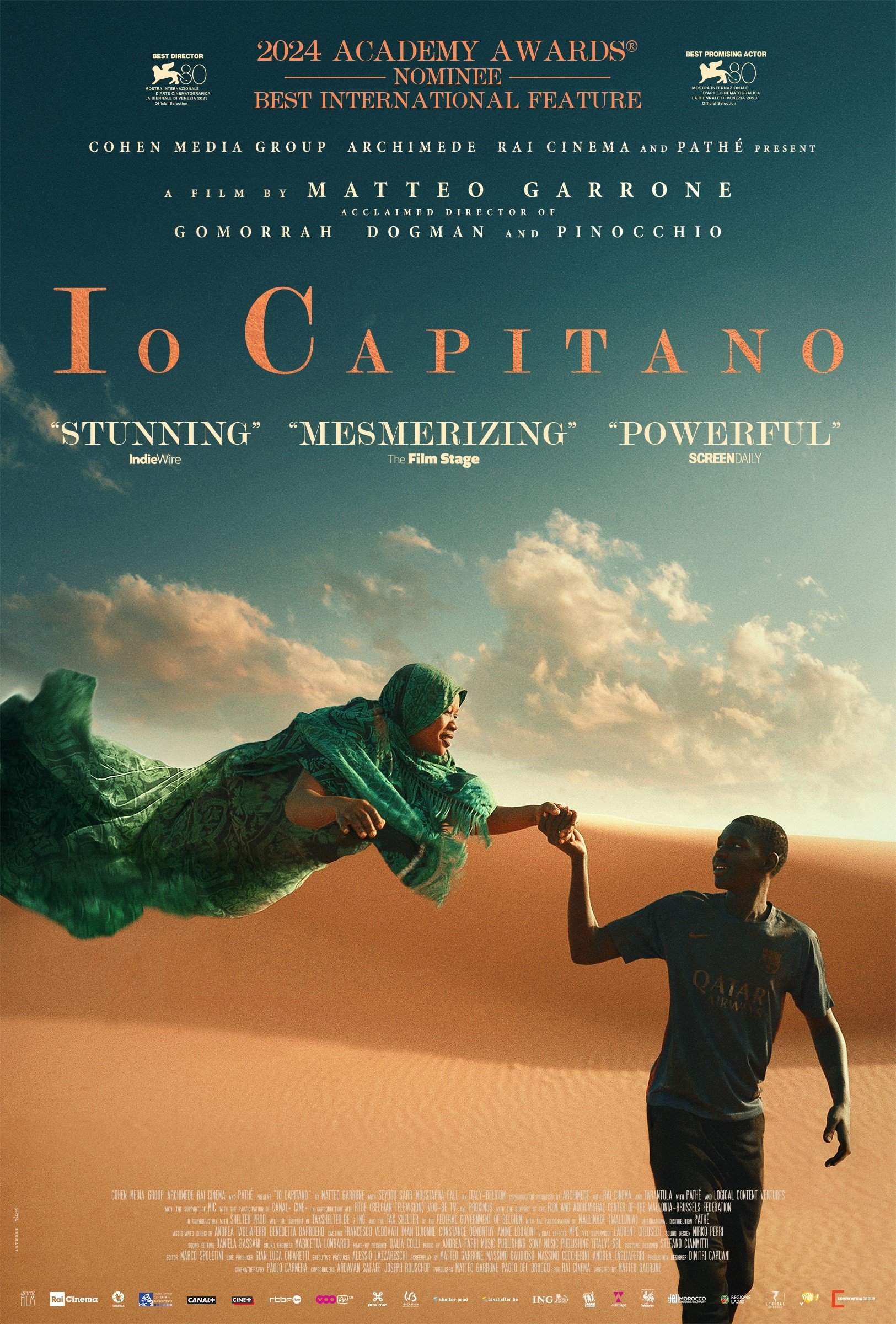Directed by: Matteo Garrone
Written by: Matteo Garrone, Massimo Ceccherini, and Massimo Gaudioso
Starring: Seydou Sarr, Moustapha Fall, and Issaka Sawadogo
Runtime: 121 minutes
‘Io Capitano’ humanizes refugee crisis and finds a star in first-time actor Seydou Sarr
Headlines inform, but often dehumanize. They’re all numbers, not names, statistics instead of faces.
“Migrant boat capsizes off Libya, 400 feared dead.”
“Massive loss of life reported in latest Mediterranean tragedy.”
“40 migrants 'killed by fumes' in hold of boat off Libya.”
Who were these people, so desperate they risked desks in the desert and on the high seas? What were their names? What were their dreams? If not us, who weeps for them now that they’re gone? Italian filmmaker Matteo Garrone puts heart behind the headlines in “Io Capitano,” a humanizing dramatization of the refugee crisis that’s resulted in thousands of unnamed deaths of Africans seeking refuge in Europe.
Two such desperate people are Senegalese teenage cousins Seydou and Moussa, played with seeming ease by newcomers Seydou Sarr and Moustapha Fall. The enterprising, sweet and streetwise boys have a gift for song and a shared dream of something more than dilapidated shacks with caving roofs for their families. Together, the boys make music, fantasize about one day signing autographs for white people once they’re famous musicians, and squirrel away cash from odd jobs until they think they have enough to fund the perilous trek from Dakar to Sicily.
“Io Capitano” hints at the disillusionment that awaits Seydou and Moussa on the other side of the Mediterranean. “You think Europe is better than Africa. Europe is nothing like you imagine. What you see on TV is not real,” the boys are warned. They’re shocked to learn there are people in Europe, a land of plenty, who sleep on the streets.
But the European-produced film, nominated for a Best International Feature Film Oscar for Italy and winner of the Venice Film Festival’s Silver Lion award, does not meaningfully grapple with Europe’s role in the refugee crisis – the boats turned back, the drowned and suffocated bodies, the closed borders that consign the desperate to death. In “Io Capitano,” both the perpetrators of suffering and the suffering themselves are all African.
And there’s no limit to the suffering experienced on the trek between Senegal and the Libyan coast at the hands of smugglers, soldiers, and profiteers. The two boys, so full of song at home, bear mute witness to unspeakable horrors: dead bodies prostrate in the sand, rigid as fallen statues, men flung from rocking truck beds and tortured in secret prisons. Seydou’s face burns, scars, twists, and ages as it takes in humanity’s worst atrocities. But it also reveals a kind of enlightenment.
Though “Io Capitano” lacks political mettle, it’s overflowing in humanity, especially in the grace of Sarr’s beatific face filling the screen with awe and terror. Garrone’s past work has fluctuated between the brutally grim (“Gomorrah,” “Dogman”) and the opulently fantastical (“Pinocchio,” “Tale of Tales”); here, Garrone marries the sensibilities. Like all heroes’ journeys, Seydou and Moussa’s is touched by the divine, a spiritual dimension glimpsed at the edges of terror as visions of angels and ancestors aid Seydou.
It’s possible they’re just the hallucinations of a boy near death. But when the beaten-but-not-broken boy proclaims, “God is with us!” one can’t help but believe.
Ranking: 3 out of 4 stars











